Interview with Merissa Hylton
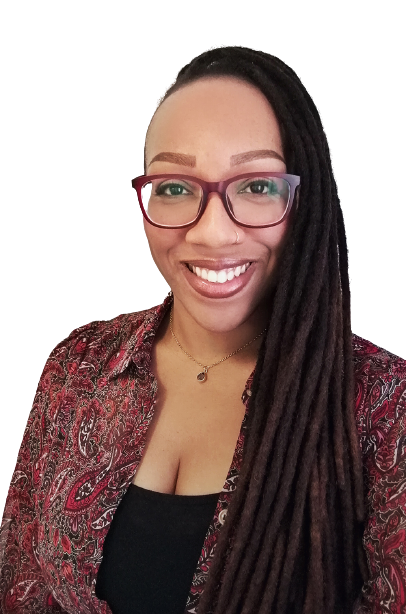
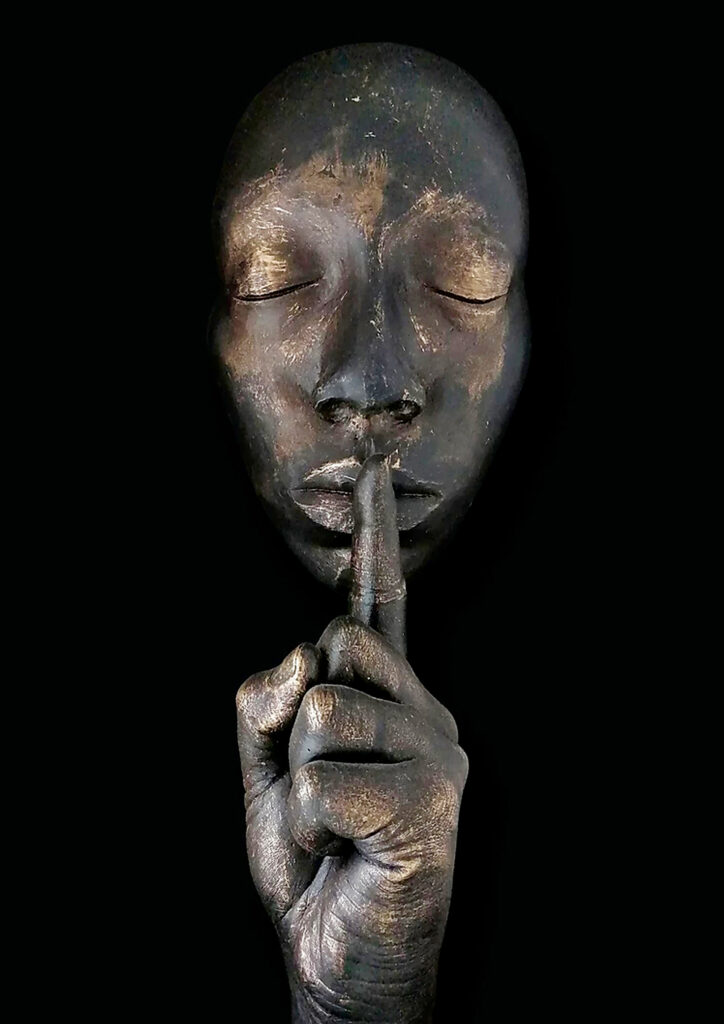
Merissa Hylton, Be Still & Know, 2019, Stonecast plaster, acrylic paint, gilding wax, MDF
I am a multidisciplinary artist and educator based in London. I am a qualified university lecturer and Associate Fellow of the Higher Education Academy. I work and tutor private art students from my studio in southeast London. I studied at London Guildhall University and embarked on a career in architecture, interiors, and textile design for 13 years before leaving the design industry to focus on developing my own art practice.
I work across a variety of media employing both traditional and experimental techniques in my creative process. With a focus on painting and sculpture, my work explores my ancestry and identity through the use of symbolism, abstract imagery, and portraiture. I am inspired by African symbolism, spirituality, and storytelling. I aim to share their rich narratives through contemporary visual interpretation.
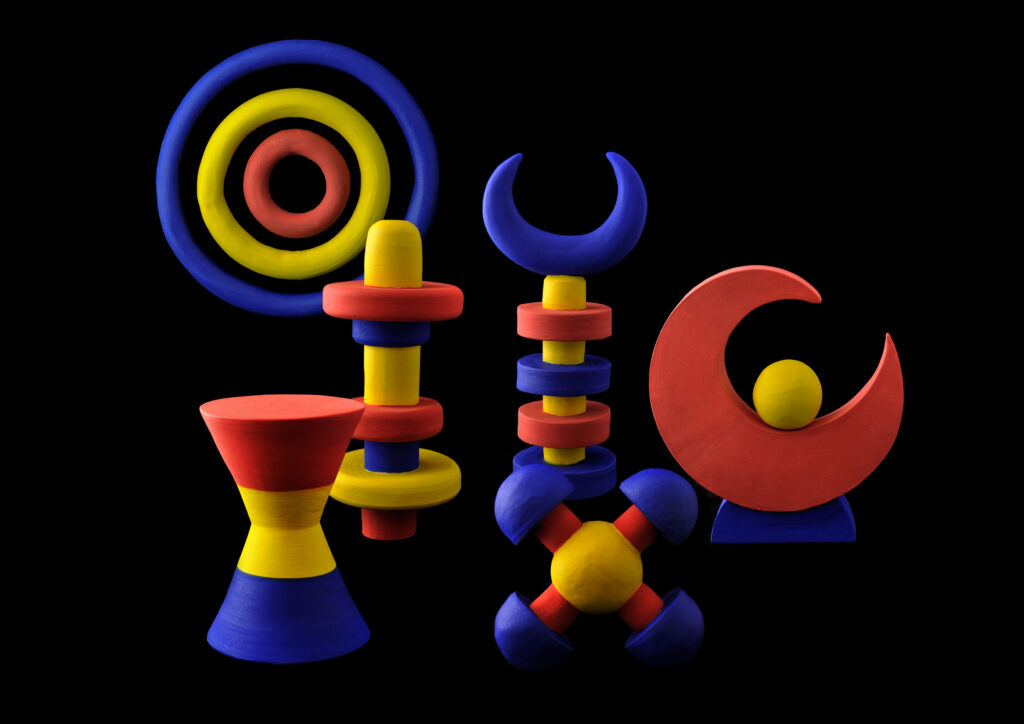 Merissa Hylton, Adinkra Collection, 2021, Stoneware Ceramic, Underglaze
Merissa Hylton, Adinkra Collection, 2021, Stoneware Ceramic, Underglaze
My work sets out to interrogate and dissect the many aspects of my own existence, including my ancestry, emotions, mental health, self-acceptance, identity, and healing. Often working in a variety of different mediums, I employ the same methodology across all of my creative projects and work with the principle that the spirit, energy, and inspiration of the subject determine the materials and form of the piece.
Each project often consists of multiple works, explored and experimented with in a range of different media grouped around specific themes and meanings. During my process of research and production, I often come across new areas of interest which in turn lead to new bodies of work.
I am a strong advocate of art as a form of creative therapy and firmly believe that engaging with art—whether in a creative capacity or a voyeuristic role—has a beneficial effect on mental health and personal well-being.
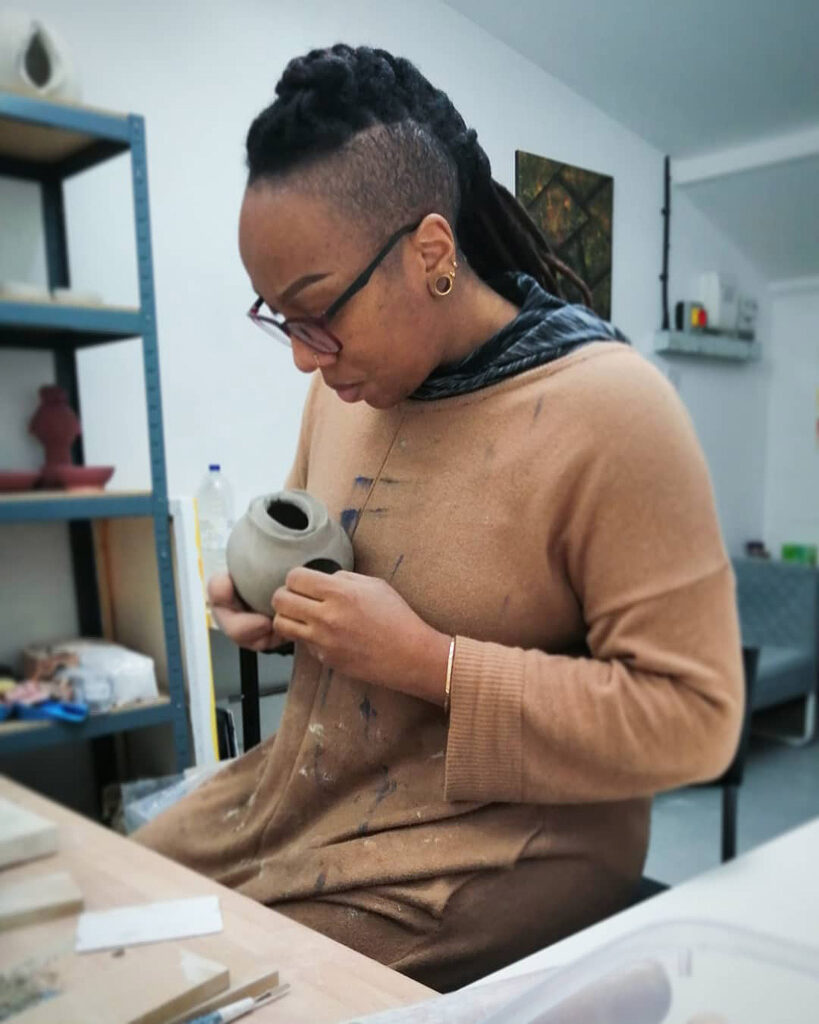
Read our interview below to get a glimpse into Melissa Hylton’s creative journey.
How does making art impact other parts of your life?
It’s therapy for me. As I stated above, as an artist, sometimes my mind never stops, so creating art is my way of getting some of my thoughts out of my head and making space for a bit of calm. I’m happy when I’m creating and I’m fortunate to be able to make a living from it. I love that my children have grown up around me and my artwork, and they understand the joy it brings me.
What are you besides an artist? How do you define your role in life?
In addition to my art practice, I’m an Associate Lecturer and Fellow of the Higher Education Academy, a private art tutor, and a trustee of a mental health arts charity. I’m passionate about education and art and I’m fortunate that I’m able to combine the two. As a child, my dream job was always to be an art teacher. I think I’ve taken this one step further by being actively immersed in the art scene and using my skills and experiences to teach and encourage others.
What types of art and culture do you like to consume? Who are your most important artistic influences?
I love sculpture in all its various forms. I went to art school so I was fortunate to have had the opportunity to learn about a lot of different sculptors. I am particularly interested in female sculptors as their work has undergone different challenges compared to male sculptors. I love work that explores natural forms and femininity. Whilst studying, I was a big fan of Barbara Hepworth’s work. As I’ve explored more, I’ve come across more Black female sculptors. I love the story behind Augusta Savage’s career and I’m currently a big fan of Simone Yvette Lee.
How do you work and how has your practice changed over time?
I work completely opposite to the way I was taught at school. I was taught to always start with small ideas and study sketches and develop my ideas from there which is something I never did. I think my art teacher gave up trying to get me to work that way. I usually see the final piece in my head and work backward from that. I tend to just jump straight in with something and correct my mistakes as I go along. Is this the right way to work? Probably not, but it works for me! Once I get into the swing of things, I’m pretty organized and efficient with how I work, so I don’t see myself changing the way I do things.
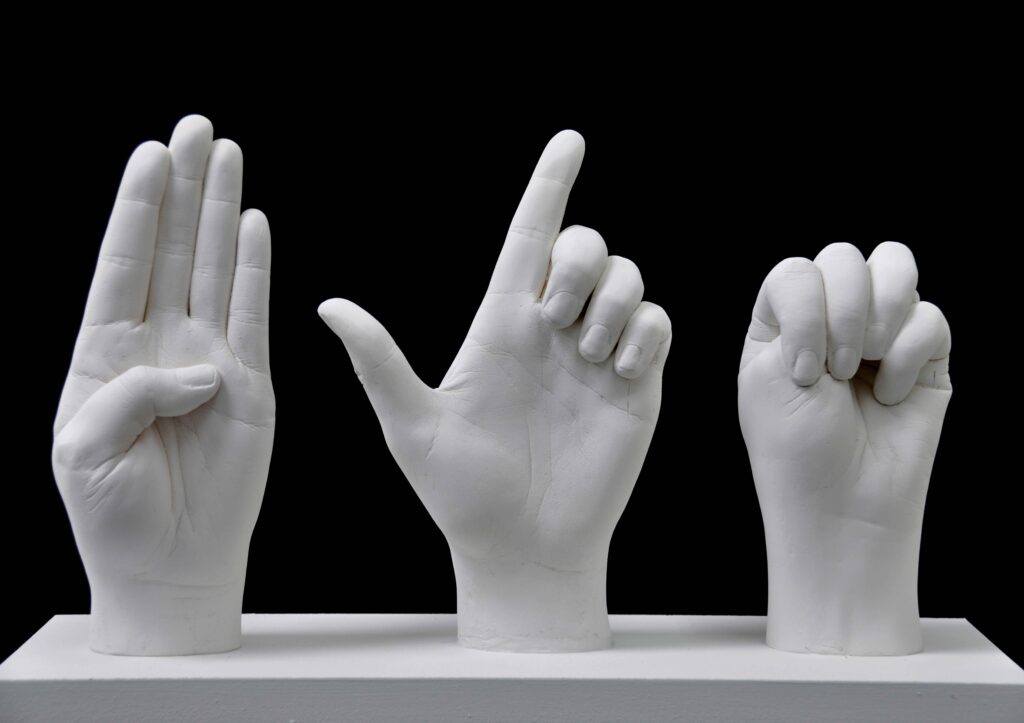 Merissa Hylton, BLM x ASL, 2020, Stonecast Plaster, Acrylic Paint, MDF
Merissa Hylton, BLM x ASL, 2020, Stonecast Plaster, Acrylic Paint, MDF
How do you cultivate your audience?
I’m quite an open person by nature and I think that is one of the things people are drawn to. I tend to remove the mystique around being an artist and show people my whole process, including all of the failures. I think that taking people on the creative journey with me gives them a sense of being a part of the process. Many people offer advice and words of encouragement and I appreciate it a lot. I’m inspired by the diversity of my audience as much as they are inspired by my work.
How have you developed your career?
I’m a multidisciplinary artist so I’ve always made an effort to try different things and learn different techniques. It’s always been important to me to make sure my practice grows and develops. Because my mind is constantly thinking of new ideas, I never really stop learning. Moving into my dedicated art studio has been pivotal in my artistic development as it has allowed me to have more space to explore my ideas. It’s also within a large mixed art community so there are always opportunities to learn, train, and collaborate with other artists and creatives.
How do you seek out opportunities?
Opportunities are everywhere! And if I don’t see them immediately, I create them. I don’t see the point in sitting back and waiting for things to fall into your lap. Aside from the obvious things like keeping an eye out for open calls and awards, I’m a big advocate for manifesting the opportunities you want. Everything starts with an idea which then grows. Quite often I have an idea and no clue where I’m going to take it. Yet somehow, an opportunity arises and I then realize the reason I started working on it.
How do you define success as an artist?
Success is subjective. If I create what I think is an amazing piece of work and the only people who give it any recognition are my children, then that is a success. I have had work acquired by museums, exhibited in amazing spaces, and sold original pieces to collectors—all successful achievements.
I have also had my paintings recreated by nine-year-olds across an academy of three primary schools in London last year, with the children studying me and my work for Black History Month. Seeing their faces with their versions of my painting was absolutely amazing! Knowing that there were children in primary school seeing images I never had the chance to see at that age and learning about Black artists is one of my biggest successes. I want the next generations to see us and feel represented and inspired by what we do as artists.
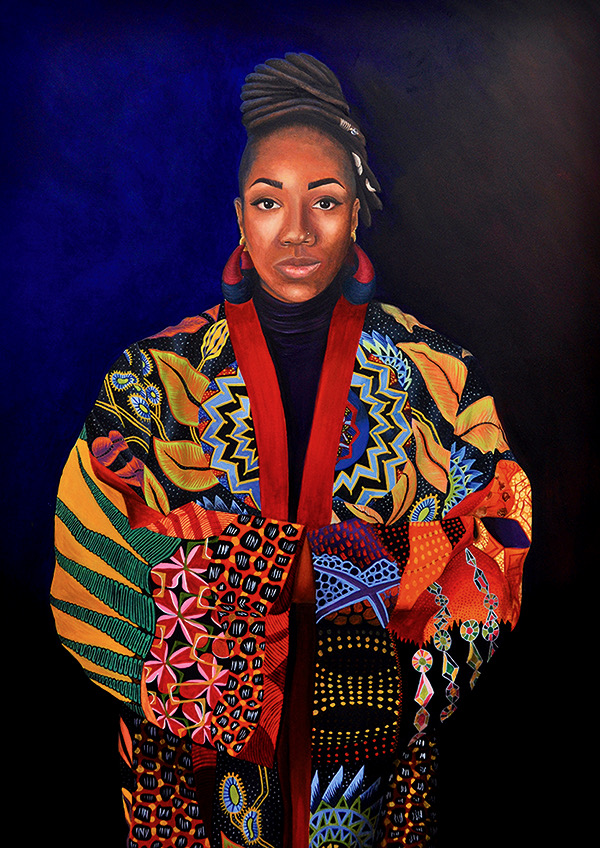 Merissa Hylton, Self Portrait, 2021, Oil on MDF board
Merissa Hylton, Self Portrait, 2021, Oil on MDF board
What role do Black artists play in society?
Our role is varied. There’s no specific job description pertaining to being a Black artist, yet we somehow manage to take on several responsibilities. We represent a marginalized group, so we have to take care not to have our work clumped together or be seen as a monolith. I believe that by our very existence, we are here to tell alternative narratives and give insight into the creative minds of Black people. We represent different stories and experiences that may otherwise be omitted from the mainstream arts and culture scene.
How can we grow and empower the Black art community?
The best way to grow and empower the Black art community is to support Black artists. Buy art from Black artists. Promote Black artists. Send opportunities to Black artists. Create spaces for Black artists. It all starts with us. It doesn’t take a lot to support your favorite artist, sharing their work is a great (and free) way to do it. Ideally, we should all be working together as well. We should be collaborating with each other, learning from each other, and raising each other up. There’s no place for the “crabs in a barrel” mentality; when one wins, we all should win.
Do you feel that your art community challenges existing barriers and assumptions?
The U.K. Black art community is relatively small compared to the United States but there are so many of us who are already making moves to challenge the status quo here. We have artists who now have their work being recognized and placed in English Heritage buildings and museums, spaces which we were previously not really seen in. I feel we are definitely moving away from what society deems as typical Black art. We are creating work that reflects our own lived experiences and being unapologetic about it.
What inspires you?
I’m inspired by my heritage and ancestry (both Jamaican and West African), emotions, cosmology, symbolism, and emotions. I love to delve deep into all these things, I never fail to find something new to investigate or experiment with. I find that when inspiration comes from within, you’re presented with an endless supply of material to work from.
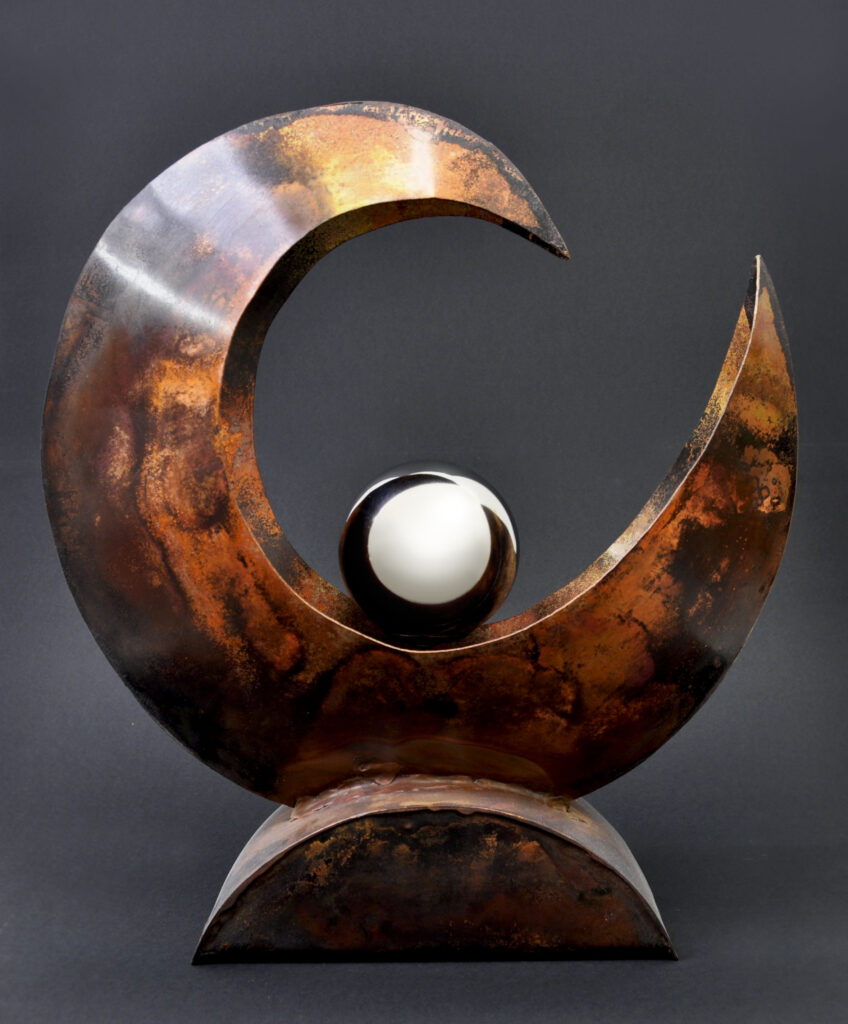 Merissa Hylton, Sankofa, 2020, Copper and Stainless Steel
Merissa Hylton, Sankofa, 2020, Copper and Stainless Steel
What is integral to the work of an artist?
Rest! Physical rest, mental rest, just rest! A lot of artists’ minds are on the go 24/7; it’s not something we can always control. We constantly have ideas buzzing around in our heads and we find ourselves doing everything or nothing at all. I’ve learned that rest is essential to prevent myself from burning out or coming up against a creative block. Sometimes that creative block is your body shouting out at you to rest; it’s not something that should be ignored.
What is the best piece of advice you’ve been given?
Be authentic. My friend and mentor, Neequaye ‘Dreph’ Dsane has always drilled that into me. Keeping the authenticity of my work is something that is at the core of what I do. A lot of my pieces are inspired by very personal experiences, so there is no other way of bringing them to life other than being authentic with the process and the message I want to convey. The authenticity has to go beyond just my work, as my work is an extension of me. I see no point in portraying one narrative in my work and not being able to back it up in real life.
Artist Contact Info
Website: merissahylton.com
Instagram: @merissahyltonart